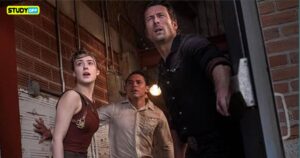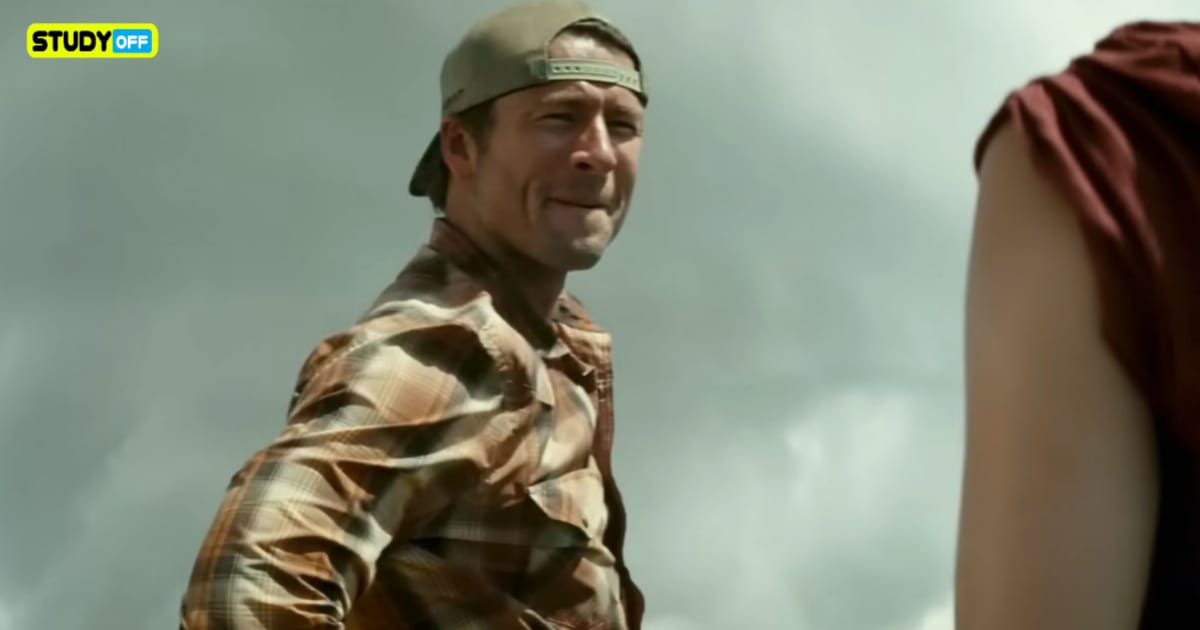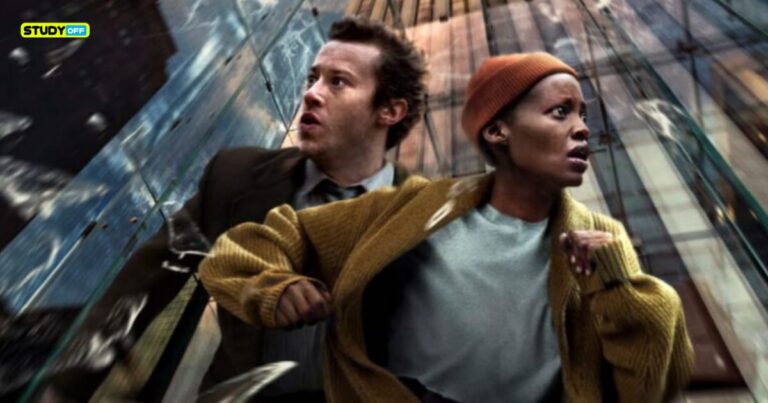Twister: The Best Story Is Told by the Tornadoes
Before the 1996 movie Twister, I was already somewhat familiar with storm chasers and what they did because I was an avid viewer of the Weather Channel.
Storm chasing became widely known after the release of this summer hit, and it appeared like everyone became fascinated by the topic. Not only did a plethora of programmes and specials appear on the Weather Channel, but network television as well as channels like National Geographic and Discovery also carried them.
Read More:
Review of “Falling”: A Dark Family Drama from Viggo Mortensen’s Directorial Debut
Twister is the story of Jo (played by Helen Hunt) and Bill (played by Bill Paxton), two meteorologists who recently got apart. He’s taken a comfortable job forecasting the weather and has a new fiancée, but she’s more fascinated than ever with tracking tornadoes across Oklahoma’s wide plains. He is only there to obtain Jo’s signature on their divorce documents before leaving. But his curiosity is piqued when she shows him DOROTHY, the device he had once imagined he would construct to send sensors into a tornado and record them in order to better comprehend them. Before long, he’s pawning off his fiancée Melissa (Jami Gertz) to other crew members so that she may go off with Jo and attempt to put Dorothy in the path of a storm.

Twister’s premise is incredibly obvious, particularly when it tries to introduce a villain. It turns out that it’s not the storms. The story pits “noble” storm chasers Jo and Bill against the “evil” storm chaser Jonas (Cary Elwes). The people in the “noble” group appear like a motley crew but are knowledgeable in their craft, and they travel around in trucks that seem like they could break down at any time. The “evil” storm chasers are well-dressed and sponsored by corporations. They all compete to be the first to launch a probe into a tornado, so they follow in the footsteps of the “noble” storm chasers. Bill’s invention was plagiarised by the “evil” ones with minimal modifications, and the term “patent” is never used.
The characters’ ability to evade a tornado that was barreling towards them in the last scene is beyond unbelievable. I promise you are not watching Twister for its narrative. It would take a crane to watch this movie without losing your mind.
Read More:
Everything We Know About My Spy: The Eternal City’s Release Date, Cast, Story, and Trailer
It’s an ok acting job. In many instances, the players are attempting, and often succeeding, in responding to situations that were simply absent at the moment. Twister shares many of the same issues that I observed in Jurassic Park. It’s not always easy for me to believe that the performers are seeing what they seem to be seeing.
It doesn’t help that the story isn’t really strong. Although Jo’s excessive fascination with tornadoes—her father was murdered by one when she was a child—is overdone, Bill Paxton and Helen Hunt are somewhat credible. You would think that witnessing one kill a family member directly would have made her worry for her own life as much as the crew’s. That is not the case. When she should be running, she just stands there, fascinated by the tornado that is barreling towards her. Despite her repeated claims that she doesn’t and that what she’s doing is “for the good of the world,” it almost seems as like she has a death wish. I simply didn’t accept it. Hunt performed as well as she could in the part, therefore I don’t think that’s her fault. I believe that the character’s poor writing was the issue in that instance.

Similarly, when Paxton left Jo, he was meant to be the one who ran away from everyone pursuing him. His fiancée is a cheerful therapist, and he works as a weatherman in a big city for a decent and secure salary. He simply transformed from a daredevil to a yuppie. It’s hard to imagine that his drastic change in direction came from a simple case of bad blood between him and Jo, or maybe from her growing fixation, but the minute a carrot is placed in front of him, he gravitates towards it. Had he been so easily influenced, shouldn’t that have been apparent by now? Wouldn’t the excitement of the pursuit have kept him interested? A therapist ought to have seen it, too.
Nevertheless, Twister isn’t a movie that people will see because of a fantastic plot. It was a summer movie, which usually translates to lighthearted amusement. That is what it does offer. I was still able to enjoy the amazing effects ten years later. Even if we have advanced since then, Twister’s special effects from ten years ago are still of a high calibre and remain relevant today. Not simply the making of the storms that appear to follow the group of chasers over the plains, but also the devastation left in the numerous farms and villages. The tornadoes in the movie were digitally added by George Lucas’ Industrial Light and Magic, and they work incredibly well. It lacks the manufactured-for-television feel I noticed in the same year’s Night of the Twisters.
The supporting cast lacks depth. Jonas, played by Cary Elwes, is a one-dimensional, smarmy villain. It’s a tribute to Philip Seymour Hoffman, who shines even in a lousy, poorly-written character almost lost as one of Jo’s crew, that Jo’s crew is just wallpaper.
Watching Twister on a large-screen, surround-sound television is fantastic. The storm seems to be blasting through the screen at me directly. It’s essentially the effects that you’ll watch this for when you want to lose yourself in a mind-numbing movie on a hot summer night. The fake suspense fades after a viewing or two. If you truly want to understand about tornadoes, disregard everything you see here and watch the films that have emerged in the wake of this movie because the science is completely incorrect.






